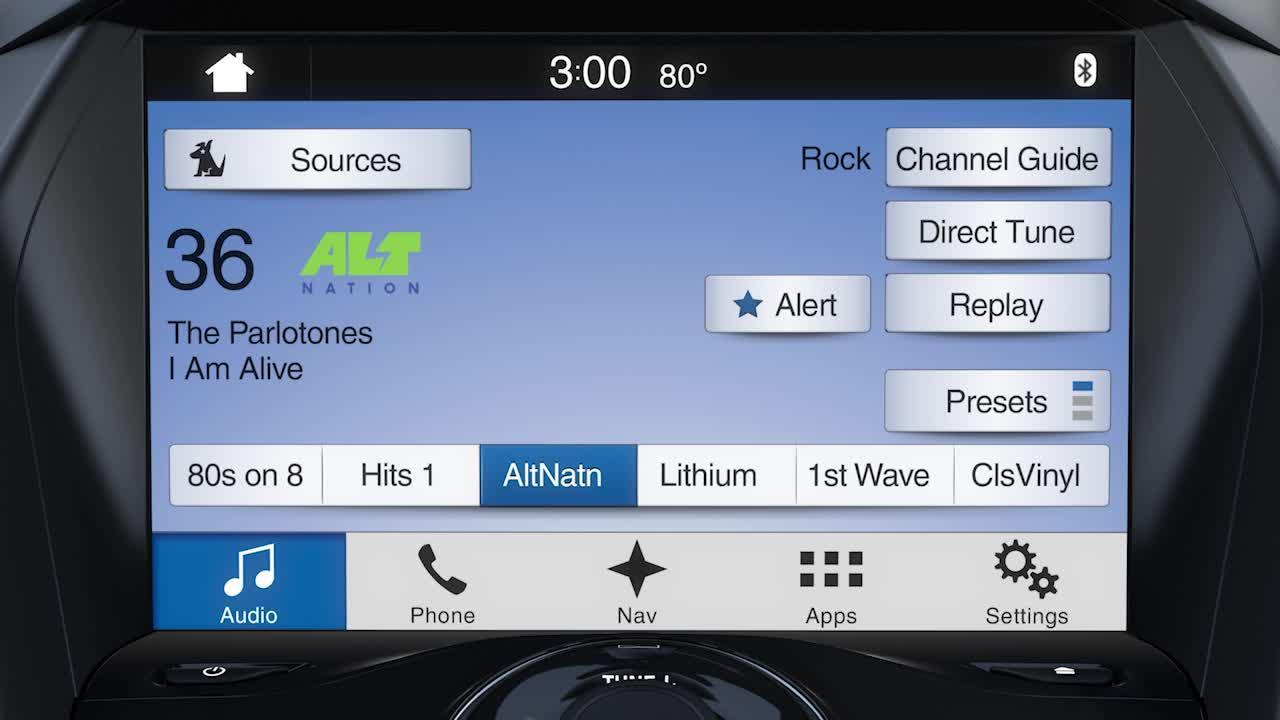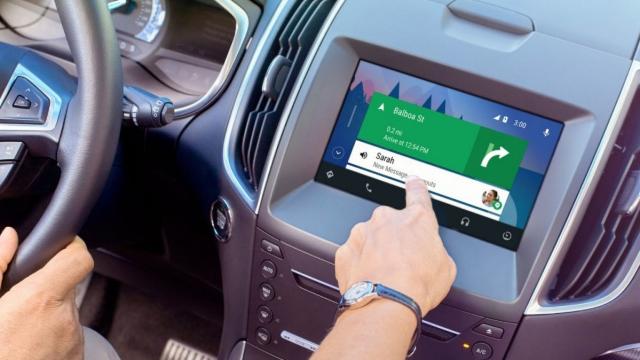A couple of weeks after General Motors and Microsoft announced a partnership that will see the tech giant providing the cloud data backbone to support GM’s autonomous driving initiatives, Ford and Google have joined forces as well. And in Ford’s case, data is merely where this collaboration begins.
Yes, there are obvious implications here for self-driving tech development built on all of Google’s achievements in machine learning and so on, but then automakers and tech companies learning from each other to realise those goals is nothing new. What makes this particular news a bit more tangible and relevant is that it’ll have a direct effect on the infotainment systems in Ford vehicles, as Google will power the Blue Oval’s in-car digital experience from 2023 onward, and the two have agreed to work together for the next six years. Per a blog from Ford’s David McClellan, on Medium:
Beginning in 2023, Ford and Lincoln customers globally will benefit from unique digital experiences built on top of Google’s Android operating system and with Google apps and services built-in to our vehicles, including world-class map and voice technology.
Now, it’s important to clarify that there’s a difference between what Ford is suggesting here — “digital experiences built on top of Android” — and Android Auto, which is available in almost any car made within the last five years when you plug your phone in. Lately, Google has redoubled its efforts to custom tailor Android as a foundation for some brands’ infotainment systems.
Google calls this initiative Android Automotive, and Android Automotive-based systems have appeared in several brands of vehicles to date, including Fiat Chrysler and Volvo products. Bear in mind, Android-based in-car platforms still let you to project your iPhone to your car’s screen, CarPlay style; we’re talking about the vehicle’s underlying OS here, not projection software.
This is a big deal, because Google happens to be really good at this sort of thing. If you’ve interacted with the infotainment system in a recent Volvo, you’ll know what I’m talking about. The graphics are slick and intuitive, the screen is responsive, and helpful voice-based utilities like Google Assistant are baked right into the software, so you don’t have the middle man of a carmaker’s rudimentary OS as the go-between standing between you and Google Maps navigation.
For many years, carmakers kept companies like Google and Microsoft at arm’s length, even while they were ostensibly working with them, because they were concerned about ceding too much control. The fear was that if the in-car experience came to be more associated with Google or Apple than the make or model, the car itself would fade in the hearts and minds of consumers, only to be replaced by the company delivering whatever’s on screen.

Some carmakers scrambled and teamed up to develop their own frameworks and application environments as a safe haven from Silicon Valley, but of course they didn’t get particularly far, nor did they cultivate a thriving third-party development ecosystem like iOS or Android enjoys. Anytime the primary motivating factor behind building a platform is to drive people away from another, better platform rather than offering anything of value to users, you’re kind of doomed from the start.
Eventually, the auto industry accepted the realisation that folks would much rather use CarPlay than, say, Ford’s Sync or Toyota’s Entune, and the relationship between car and tech companies has become far less contentious. Which is good, because it results in quicker progress and tech that’s more pleasant to use.
To those with long memories, the news of Ford and Google uniting is the the recovery of a deal that both sides tried and failed to ink roughly four years ago. That failure led to the firing of Ford’s then-CEO Mark Fields, according to an Automotive News report at the time.
Ford and Google’s work together will start on your car’s screen, but where will it go? Interestingly, Ford’s post on Medium doesn’t mention the words “autonomy” or “self driving” anywhere, though the press release lists self driving as part of “the most profound transformation in Ford’s history,” spurring this partnership. I’ll make an educated, safe guess that Google’s data insights and logistics will contribute to that goal, even though it’s not explicitly stated yet.
Elsewhere, the two entities are working on less-clearly defined ways to innovate, like “developing new retail experiences.”
We’re proud to share that Ford and Google are establishing a new collaborative group fittingly called Team Upshift, comprised of employees from both companies and tasked with driving future innovations. We’re going to leverage the talent and assets of both companies to push the boundaries of Ford’s transformation, unlock personalised consumer experiences, and drive disruptive, data-driven opportunities. This may include projects ranging from modernising our plants through vision AI, developing new retail experiences when buying a vehicle, creating new ownership offers based on connected vehicle data, and more.
Phrases like “new ownership offers based on connected vehicle data and “personalised consumer experiences” will surely ring a few alarms for anyone sensitive to the way our data is traded on at our own expense, often times to sell us more crap. Yeah, I don’t like the way that sounds either, though we already live with it every day on our phones, TVs, smart speakers and even some kitchen appliances, so it was only inevitable this was going to become a problem as cars become smarter. Ultimately, if I have to choose between a car company making software that mines my data and barely functions or a tech company making software that mines my data and works very well, yeah, I’m going to choose the latter.
